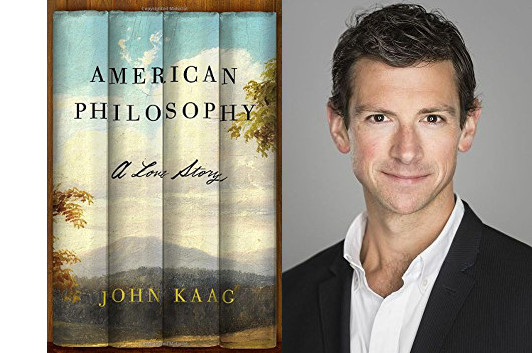Life Stories #88: John Kaag
I spoke to John Kaag about his memoir, American Philosophy, shortly after the 2016 presidential election, so although we did spend a fair amount of time talking about his personal story, and how a rare book collection tucked away in an old building in the woods of New Hampshire helped Kaag make his way back from a profound, life-questioning despair, we also discussed what American philosophy can do to give solace to those of us who were shocked by what looked (and still looks) like the triumph of wrong over right, of evil over good. Philosophy, I think, offers us a guide to how we can live our lives, how we can best respond to the world around us, by getting in touch with what others have called “the better angels of our nature.” Kaag had some thoughts on that:
“One thing [philosophy] can do is to [help us] actually understand the gravity of the situation, so we can clarify how bad things actually are—and they’re bad. And William James actually had a good sense of this… James struggled with personal depression for most of his life, but he was also very touched by the political workings of imperialism, and James directly fought back against those forces.
I think that philosophy gives us a way of understanding what to do in the face of desperation or desolation. Sometimes Americans aren’t the best at this, but I’m thinking about Rilke. There’s this amazing story about Rilke in The Notebooks of Malte Laurids Brigge… a story about a guy who’s facing utter desolation; he thinks that the world possibly is meaningless. But he also says if that is possible, it’s also possible that he himself, as an individual, might have the ability to do something about the meaninglessness. And I think that that’s actually a line that runs through American philosophy as well.”
Kaag also recommends essays by James and Henry David Thoreau as starting points for readers interested in what the American philosophical tradition, with its emphases on pragmatism and renewal, can tell us about how to move forward. And he hints at future writings on his part that might follow in those footsteps: “I think that there are lots of times in the history of philosophy where philosophers have had to stake a great deal on their thoughts, and I think that we might be entering one of these times,” he says. “I’m in the process of writing another sort of memoir like this one, but… it will have to be in some ways politically oriented, or socially oriented, because I think it’s wholly unacceptable for philosophers to ascend into the ivory tower when things are going really nasty.”
Listen to Life Stories #88: John Kaag (MP3 file); or download this file by right-clicking (Mac users, option-click). Or subscribe to Life Stories in iTunes, where you can catch up with earlier episodes and be alerted whenever a new one is released. (And if you are an iTunes subscriber, please consider rating and reviewing the podcast!)
photo: Rick Bern
18 January 2017 | life stories |


 Our Endless and Proper Work is my new book with Belt Publishing about starting (and sticking to) a productive writing practice.
Our Endless and Proper Work is my new book with Belt Publishing about starting (and sticking to) a productive writing practice. 
